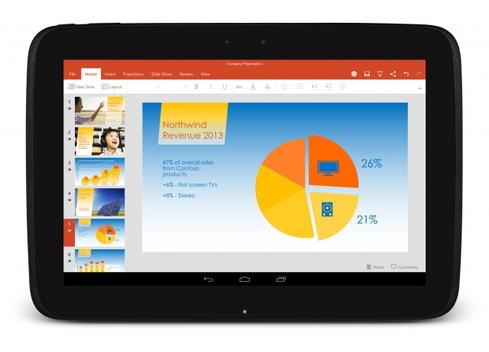Microsoft: 74 Device Partners Will Bring Office To Android
Microsoft is finding new routes to mobile success by partnering with 74 device makers to bring its apps and services, including Office, to Android tablets and smartphones.


5 Ways Microsoft Messed Up Mobile
5 Ways Microsoft Messed Up Mobile (Click image for larger view and slideshow.)
Microsoft is broadening its mobile footprint in a major way, the company announced earlier this week.
Redmond has announced mobile-focused partnerships with a total of 74 device makers in 25 countries. The manufacturers plan to bundle Microsoft's apps and services on its Android smartphones and tablets.
As part of the deal, these partners are offering, or will soon offer, Android devices with Word, Excel, Outlook, PowerPoint, OneNote, OneDrive, and Skype pre-installed.
Microsoft's apps and services are already available on a number of Android devices, including the LG G Pad 2, Sony Xperia Z4, and Samsung Galaxy X6.
In May 2015, Microsoft announced partnerships with 31 device makers to bring Office and Skype to Android tablets. Partners included LG, Sony, Teclast, Haier, and Prestigio. The Feb. 10 announcement more than doubles the number of the company's partnerships.
Acer is one of the newest companies to join that growing pool. The device maker will begin pre-installing Office and Skype on select Android smartphones and tablets starting in the second half of 2016.
Windows Phone has proven a disaster, despite Microsoft's release of the new Lumia 950 and Lumia 950 XL in October 2015. Redmond sold about 4.5 million Lumia devices during the fourth quarter of 2015, marking a 57% drop from 10.5 million one year prior.
In comparison, Samsung shipped 85.6 million devices during Q4 2015. Apple reported a record-breaking quarter during the same time frame, in which it shipped 74.8 million iPhones.
Microsoft has recognized its strength is not in mobile hardware but in mobile apps, especially those built for productivity. With its smartphone marketshare tumbling by the quarter, it makes sense to expand its mobile strategy by offering those apps on competitor devices.
Over the past year, Microsoft has also pushed some of its most popular apps and services to iOS and Android smartphones. These include Outlook, which was recently revamped for both platforms, in addition to Cortana, Skype for Business, and the rest of the Office suite.
The strategy is intended to boost the number of people using Microsoft products, which could in turn increase the number of people paying for Office 365 and premium features. Office 365 has proven a key area of growth, expanding to 20.6 million subscribers during Microsoft's most recent fiscal quarter.
[Steve Ballmer: Why he doesn't support Satya Nadella's mobile strategy.]
"We've re-engineered many of our flagship products to be more modern, we've made Office and some of our most popular services readily available on more platforms and devices than ever before, and we've acquired companies that can help us realize our vision as we rethink traditional productivity," wrote Nick Parker, corporate vice president of Microsoft's OEM division, in a blog post on the news.
As Parker noted, Redmond has confirmed several acquisitions over the last few months to enhance its productivity apps. Among these are keyboard predictor SwiftKey, messaging app Talko, and technologies from management software company Event Zero.
With more than double the amount of device partners it had last year, will Microsoft's expanded presence on partner smartphones prove a successful move? We'd like to hear your thoughts.
Rising stars wanted. Are you an IT professional under age 30 who's making a major contribution to the field? Do you know someone who fits that description? Submit your entry now for InformationWeek's Pearl Award. Full details and a submission form can be found here.
About the Author(s)
You May Also Like
How to Amplify DevOps with DevSecOps
May 22, 2024Generative AI: Use Cases and Risks in 2024
May 29, 2024Smart Service Management
June 4, 2024







